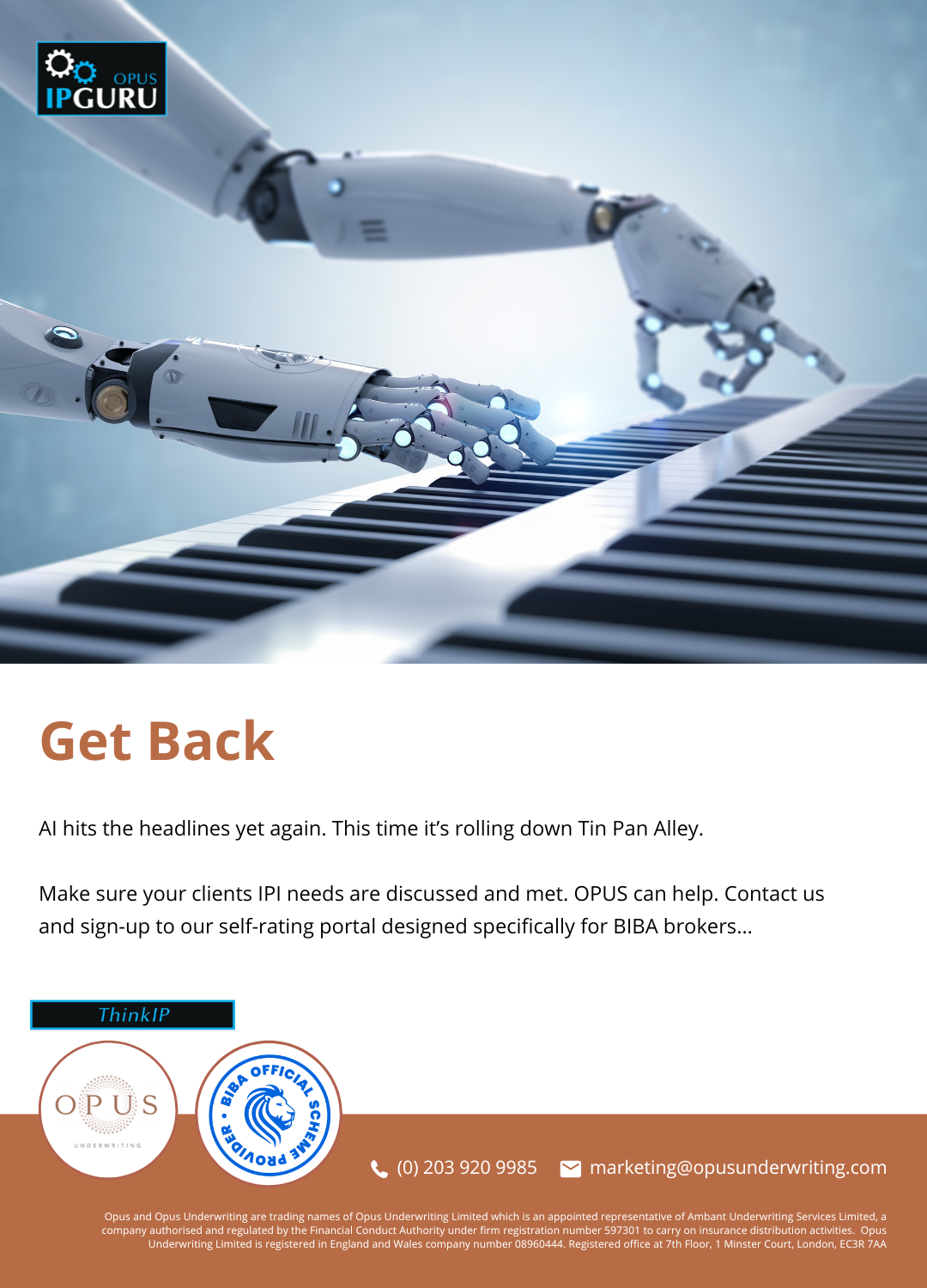Imagine…
You’re dead. In fact, you died a while back. But, when you were alive you possessed a mellifluous voice, theatrical, ‘fruity’ even. Built for narration. Think Richard Burton only smoother – an Irish whiskey version. So good was your voice that one of your descendants thinks if only they could harness it now and raise it from the grave, it might be worth a bob or two. Maybe flog it to London Underground for a new “mind the gap” announcement. That sort of thing. Would you care? You’re dead remember. Would you mind your living relatives monetising it? Quite a few issues to unpack but if I were to tell you this is now more reality than morality and it’s right here in 2023, have I got your attention?
Good. Check this out.
I get by with a little help from AI
The Beatles have spilt up. The Beatles are making a new record. Both true. Due for release this Autumn and featuring the unforgettable sound of John Lennon on vocals. How so? In the words of Sir Paul McCartney:
“We were able to take John’s voice and get it pure through…AI, so that then we could mix the record as you would normally do.”
And all from a demo’ tape that Lennon made prior to his assassination in 1980. McCartney goes on to explain where the idea originated. Peter Jackson, the film maker, did a documentary called Get Back on the Beatles about the making of the album Let it Be. To do this he used some archive materials including what Sir Paul describes as:
“John’s voice from a ropey little bit of cassette”.
From this scanty source material McCartney describes how Jackson, utilising AI technology could separate Lennon’s voce from other background noise and make it pure.
They could tell the AI machine “that’s a voice. This is a guitar. Lose the guitar” and the AI delivered. From this, McCartney and others, knew it was possible to release a ‘new’ Beatles track on the back of old demo’s if they existed so long as all (the living) interested parties consented to the proposition. So, this is happening. Technology has come this far. It lives among us.
Livin’ for today
Before we move on to consider who might own the new Beatles song and all the copyright intricacy therein, this use of AI is quite different from the use currently vexing many artists where platforms like ChatGPT, on instruction, synthesise the voice, style and even the genre of a particular artist to, essentially, fake it like a Gucci handbag. That’s a whole other article and a massive existential threat to the music scene and all on the heels of streaming and the damage to artists and writer’s revenue through various platforms. At least the new Beatles song will be, essentially, a human creation assisted by AI. There’s a big difference. The original Lennon demo’ tape was his own creation. The new song will be a collaborative human creation. Many will share McCartney’s view:
“All of [this] is kind of scary…but exciting – because it’s the future.”
Compare this to artists like Drake currently being synthesised by AI without consent, who is so angry he can barely see a future.
Imagine no possessions
Contrary to the lyrics of the song, this really is “hard to do” when the property is intellectual and not physical. Technical challenges are all fine and dandy but someone at some point will inevitably see sense and shout “show me the money!”. It’s just how we are, as humans. We’re safe until AI wants its own pocket money allowance and finds a way to spend it. At that point, find a new planet, this one’s broken.
John Lennon’s estate, Yoko, Sean et al presumably and Sir Paul, are all set to gain financially from the release of the new song. Lennon’s songs will be copyright protected (in the U.S. where he lived) as audio recordings until 2064. For sheet music, the timeline is 95 years from that written before 1974 and anything scribed with Yoko after 1974 (remember she recently won a co-writer credit on “Imagine”) the clock doesn’t start until the collaborator dies.
In addition, Lennon wrote most of his songs with McCartney. These copyrights will last until the death of McCartney plus 80 years afterwards.
So, we have quite some time until these copyrights fall into the public domain and may be freely accessed. Until then, they’re an ‘earner’.
You may say I’m a dreamer
Yes, there’s a financial reward. We can all be cynical as to motive. But all these folk are artists. They dance to a different beat. Money is a by-catch of their success (albeit rarely thrown back!), not the driver. Who doesn’t want to hear John’s terrific voice on a ‘new’ song before Christmas? I do, and I value the human creativity in delivering us that song utilising but not created by AI.
“But I’m not the only one”.
I hope.
Murray Fairclough
Development Underwriter
OPUS Underwriting Limited
+44 (0) 780 145 9940
underwriting@opusunderwriting.com
Researched by Ben Fairclough








